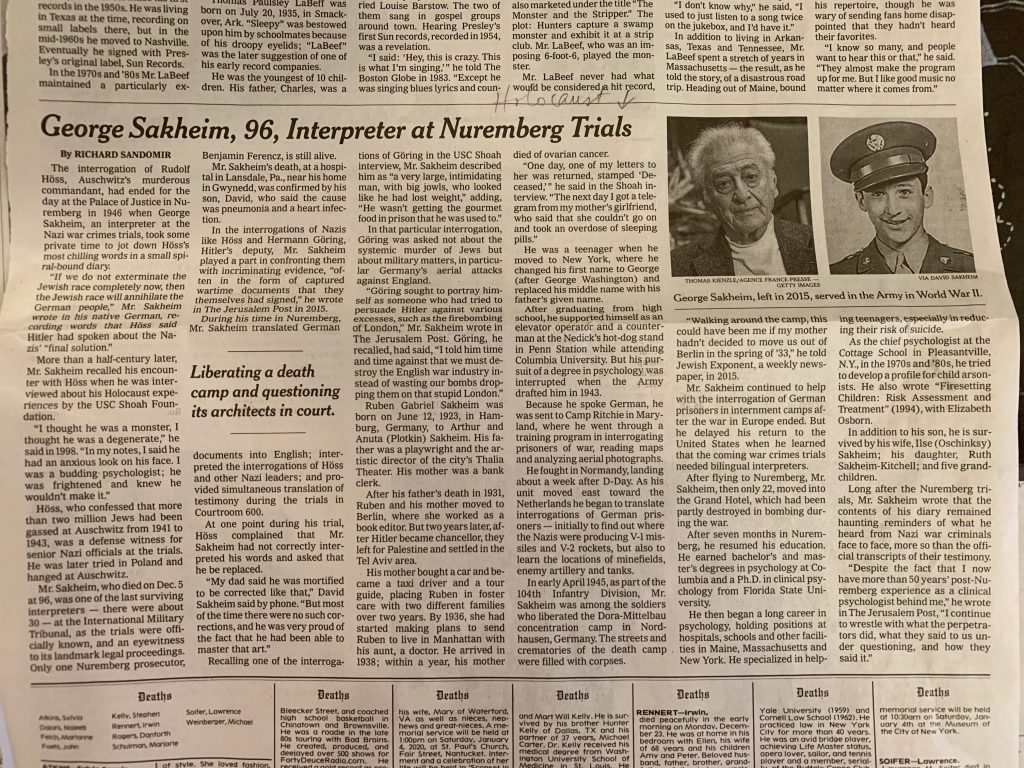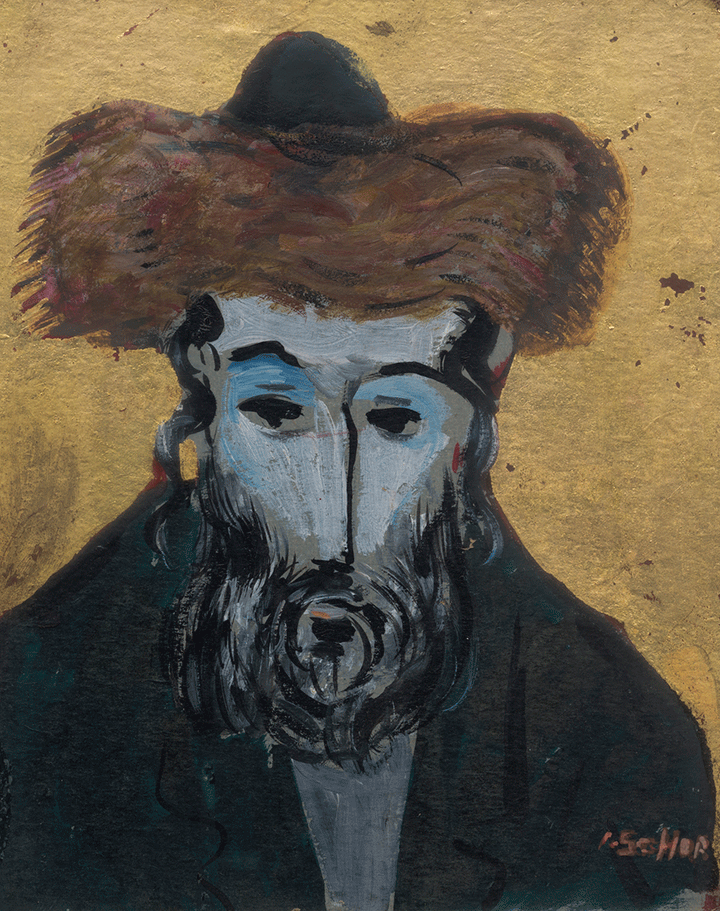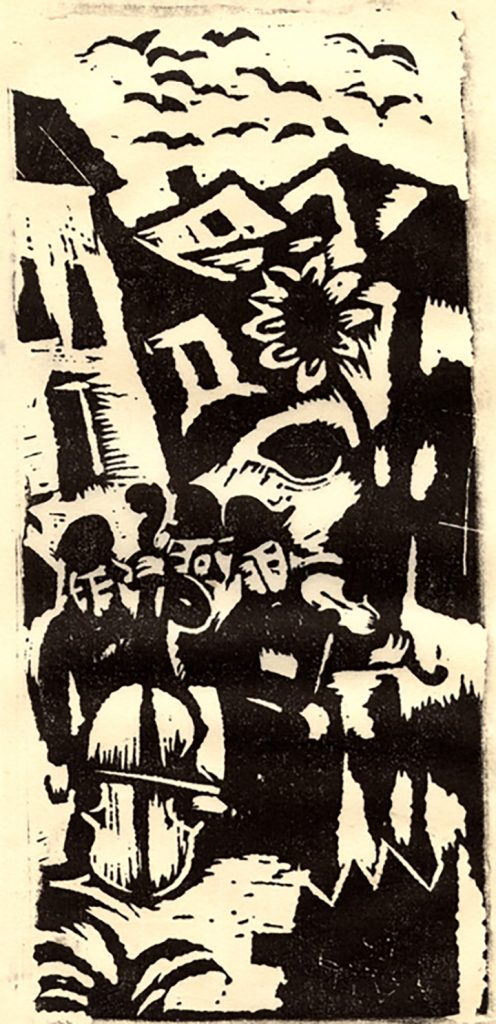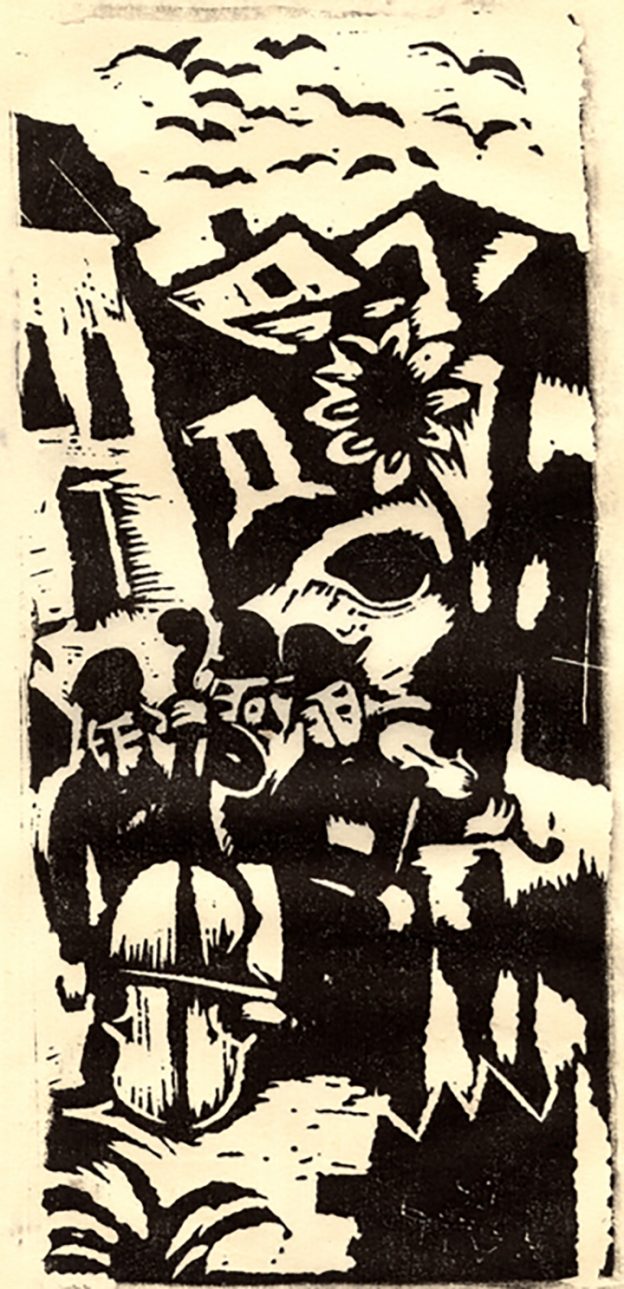I’ve been saving Holocaust-related obituaries for years, of resistance heroes and righteous Christians, and stories of miraculous survival. As that generation is coming to its end, there are fewer and fewer of such obits. Here, from the December 30, 2019 copy of The New York Times, is the obituary of George Sakheim, who, as a 22 year old American soldier, worked as a translator at the Nuremberg trials; a refugee from Nazi Germany, he found himself translating the testimony of Auschwitz commandant Rudolf Höss. Simultaneously instances of anti-Semitism along with other discrimination and xenophobia are increasing around the world. Thus recent white supremacist chants of “Jews will not replace us” is a chilling echo of Höss’s testimony on the “final solution:” ”If we do not exterminate the Jewish race completely now, then the Jewish race will annihilate the German people.”


The December 29 machete attack on a group of Hasidic Jews in upstate New York celebrating the last night of Chanukah is deeply upsetting, as are all of the recent hate crimes committed during the hateful influence of the trump regime (today the information about the suspect in the Chanukah is complex: first version, he is a diagnosed schizophrenic and thus it was not a hate crime; second updated version, in the past month the suspect had done numerous online searches of an anti-Semitic nature–this consideration of the responsibility or political volition on the part of a mentally ill person and the role of the political discourse of that is that person’s context, makes me think of an Op Ed piece I read a while back in the Times, indicating that while in America the voices that schizophrenics report hearing tend to be violent in nature, in other countries the voices may tell the person “to do domestic chores.”
I looked to my father Ilya Schor‘s work for his many representations of the Hasidic community of pre-War Eastern Europe and chose a small painting on a gold leaf background, Hasid with a Streimel, a symbolized portrait of his own father, Naftali Schorr, a Hasidic folk artist from Zloczow—the seriousness and interiority of the face always struck me and influenced my being in the world even though my parents brought me up in a resolutely secular manner with no religious training.

Another work by my father, a wood engraving of Musicians in the Shtel reminds me of a story from Martin Buber‘s Tales of the Hasidim-Later Masters which along with my father’s work has informed my understanding of Judaism.
“Rabbi Menachem Mendel of Vorki was asked what constitutes a true Jew. He said: ‘Three things are fitting for us: upright kneeling, silent screaming, motionless dance.'”

